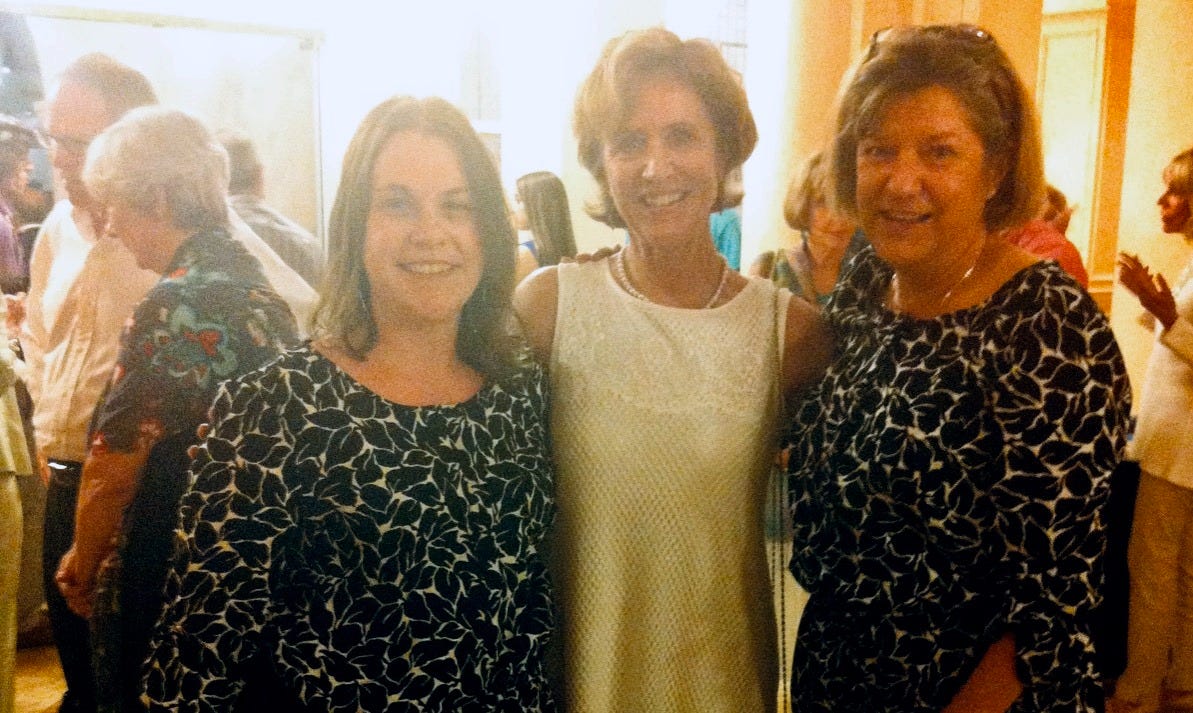I’m writing having just gotten home from the Cleveland International Film Festival where my latest feature, ALL THAT WE LOVE, directed by Yen Tan and starring Margaret Cho, screened. This is my fourth film playing CIFF over the years and it’s one of my favorite film festivals. Now in its 49th year, CIFF is a well-oiled machine. The communication from its operational staff is clear and concise, the programmers conduct thoughtful Q&As, the ticketing system is flawless, guest services is welcoming, and downtown Cleveland's Playhouse Square, the second largest performing arts center in the United States (only Lincoln Center is larger) makes for the perfect setting to host a film festival. Most importantly, CIFF opens its arms to producers.
Living in Detroit, Cleveland is less than a three hour drive, which makes me the right person from my film team to attend. The festival offered a meaningful travel stipend of $1,000 and extended the stipend to me in lieu of Yen attending. Seems logical, but not all festivals host producers in this kind of way. More often than not, festivals don’t include producers in travel benefits even if the director can’t attend, and exclude them from their film’s Q&A even in times when they’ve paid their own way to be there. In fact, while writing this, I received an email from a producer telling me that Visions du Réel, one of the leading non-fiction film festivals in the world that takes place this month, told a producer that they were not welcome to join the Q&A of their film and that “we at Visions du Réel like to devote the Q&A at the end of the screening to the director(s) directly.”
I’ve had several unpleasant festival experiences as a producer. Most notably when IT FOLLOWS premiered at the Cannes Film Festival in 2014, which I wrote about for Film Independent. But mistreatment happens everywhere. One instance that comes to mind was at the 2015 Sarasota Film Festival when I’LL SEE YOU IN MY DREAMS was the closing night film. Our distributor, Bleecker Street, covered travel for our director Brett Haley and actors Blythe Danner and Sam Elliott. I however traveled to the festival on my own dime, along with Laura Smith, my producing partner on the film. 2015 was a big year for us. I’LL SEE YOU IN MY DREAMS had just premiered at Sundance and was acquired by Bleecker Street for enough money to pay back all our investors and IT FOLLOWS (which we also produced together) was about to open in theaters. We wanted to bask in the Florida sun and celebrate. My two aunts from Tampa drove down to Sarasota for the screening, Laura’s mom and her partner flew in from Santa Barbara for the occasion, and our music supervisor and her friend flew in as well. It was also Laura’s birthday. Our families had not yet seen the film and we were so excited to be able to share it with them in this way. However, when we showed up at the Sarasota Opera House where the film was screening, our director and actors were escorted to a reserved section down front and Laura and I were told our seats were up in the balcony. Despite the venue’s 1,000+ seats, apparently there wasn't room for us and our guests in a decent section in the theater. To say this was utterly embarrassing, being treated this way in front of our family, would be an understatement. We of course went into producer mode and eventually got ourselves seated with our director and actors, but the treatment by the festival spoiled the night for us and deflated our spirits.

(There was also a fundraising dinner following our screening that was tied to buying a ticket to our film, which we were not invited to attend. We showed up anyway and ran into producer Lynda Obst who I worked for early in my career. Lynda was at the screening and loved the film and scolded the festival on our behalf for not including us in a dinner that was using our film to raise money for the festival. RIP Lynda.)
I understand festivals not being able to cover travel for producers in addition to the director, it’s just not financially feasible, especially in this moment where everyone is struggling. But to not embrace producers when they have spent their own money to attend, to not do the things that don’t cost money such as including them in Q&As, or reserving seats for them, or listing their names in the program, is shortsighted and disrespectful. In addition to all our contributions in making the film, who do festivals think handles all the logistical elements that go into a film screening at a festival?
Back to Cleveland… My film that screened, ALL THAT WE LOVE, is about a woman navigating the grief that comes with the death of her beloved dog while also facing an empty nest, fighting with her BFF, and being confronted with feelings for her estranged ex-husband who unexpectedly resurfaces. It’s the kind of slice-of-life film about real people that has something for everyone, which I was reminded of by being in attendance at our screenings. From the audience questions during the Q&A, to people coming up to me in the lobby, and then in the restroom, and even out on the street as I was walking back to my hotel, everyone had a different touch point of the film that moved them that they wanted to share with me. My last interaction was with an older woman who told me she went to the screening not knowing anything about the film, but that her dog had recently died so she felt it was serendipitous that she was there, that the film validated the intense feelings of loss she was experiencing. She showed me a photo of her dog that was the screensaver on her phone as she teared up. I gave her a hug and thanked her for coming to the film and for sharing her story with me.
I didn’t realize it when driving down to Cleveland, but I really needed this trip. Film festivals are the only place where these kinds of interactions happen. Where you get to watch your film with a group of strangers, non industry folk, who love movies and who are encouraged to engage with you. A place where your work is being celebrated prior to any box office receipts or award campaigns. This audience interaction is vital because it reminds you why you do the work you do.
I first read the script for ALL THAT WE LOVE in March of 2016 marking almost a decade of producing to get the film made. Doing the math of what I got paid vs how long it took to make the film, it’s easy to say, “I just can’t do that again.” But then I come face to face with a woman in tears who is telling me how the film brought her great comfort in a challenging time in her life and so many people telling me I should be proud of the film (I am!). Directors get to travel with their films and experience this all the time, adding fuel to their fire. If I’m never given the opportunity to have these moments, how am I expected to keep going? What inspires me to take on the next script that will require me to spend years working with no pay to get it into production?
ALL THAT WE LOVE has played eight film festivals since its Tribeca premiere last summer, but this is the first of the eight I have attended and will probably be my last. (I was at the Tribeca premiere because we budgeted for everyone to attend out of the production budget.) I promised myself a long time ago that I would not spend my own money to attend film festivals if I have a film screening, it’s just not a financially responsible thing to do and should be covered by the festival or the film. I’m so thankful to CIFF for being just as excited to have me attend the festival as they would my director and for ensuring that I did not have to go out-of-pocket to participate.
We constantly talk about the state of the industry from a capitalistic point of view as it relates to what’s being made and sold, but we also need to address the current state of the industry as it relates to our spirit and emotional well-being, which is currently in the gutter for most producers. So if you are in a position of deciding whether or not to include producers, I encourage you to always be inclusive, especially when it doesn’t cost you any money. Without these moments of recognition, celebration, and connection, it’s hard to see the point of it all. If producers are simply relegated to the grind, you’re going to lose us.





This hits home. When our film premiered at Tribeca, we producers were called Guests of the Filmmaker. I thought, wait a gosh darn minute, how are we not filmmakers? We often find the funds and even use our own to make the films happen, set up and oversee businesses forever, read and give notes on scripts and cuts over and over and over, find distribution and act as lawyers, CEOs, therapists, casting directors, and den mothers/fathers to the crew. When producing, I'm right there at camera with the director, especially when it's a director's first time at bat. Producers/directors are in a marriage and when making an indie film, they're in the trenches TOGETHER. There are some festivals who understand this (so grateful for them) but some do not and it's disheartening and deflating after all of the work we've done. Thanks for giving us all a voice and all you do Rebecca! Hopefully all of the festivals will come around and show producers their value!
I love everything about this post. Thank you for your candor, leadership, and wisdom, Rebecca. Not to mention huge thanks to you for bringing us these wonderful and celebrated films!